Closing on a home involves more than just finalizing the sale price—it comes with additional costs that can catch many buyers off guard. These expenses, known as closing costs, encompass a range of fees that ensure the legal transfer of property ownership. From lender charges to taxes and insurance, the total can add up quickly. Understanding what goes into these fees is crucial for anyone planning to buy a home, as they typically account for 2% to 5% of the purchase price. By preparing ahead, buyers can avoid surprises and ensure a smoother home-buying process.

What Are Closing Costs?
Closing costs represent a variety of fees paid at the end of a real estate transaction, ensuring that all legal, administrative, and financial aspects of the sale are completed. These costs typically include a mix of lender fees, title services, taxes, and pre-paid expenses, all of which help finalize the transfer of ownership from seller to buyer. While these fees are often grouped together, each one serves a specific purpose, with some being negotiable and others fixed by local or state regulations.
A significant portion of closing costs comes from lender-related charges. These can include application fees, loan origination fees, and appraisal costs, which cover the evaluation of the property’s market value. Depending on the loan type, buyers might also encounter mortgage insurance premiums if their down payment is less than 20% of the home’s price. Additionally, underwriting fees cover the process of assessing a buyer’s financial background to approve the loan. These lender fees alone can make up a substantial part of the overall closing costs, but they are essential to secure financing.
Other important closing costs include title services, which confirm that the home’s title is clear of liens or legal disputes, and title insurance, which protects the buyer and lender against future claims. Buyers should also expect to pay government fees such as recording fees and transfer taxes, which legally register the property in the new owner’s name. Prepaid expenses, like property taxes and homeowner’s insurance, may be collected at closing to cover the initial months of homeownership. While these costs vary based on location and lender, understanding the different components can help buyers budget more effectively for their new home.
Lender Fees and Mortgage Costs
Lender fees make up a large portion of closing costs, covering various services required to secure and process a mortgage. One of the first charges buyers encounter is the loan origination fee, typically 0.5% to 1% of the loan amount. This fee compensates the lender for processing the loan application, reviewing financial documents, and underwriting the loan. Additionally, there may be application fees, which are separate costs tied to submitting the mortgage paperwork. Though some lenders waive this, buyers should verify these details upfront to avoid surprises.
Another key cost is the appraisal fee. Lenders require an appraisal to verify that the home’s market value aligns with the amount being borrowed. This safeguards both the lender and the purchaser from paying too much for a property. Appraisal costs typically range between $300 to $500, depending on the home’s location, size, and complexity. Some properties may require more specialized appraisals, which could push this cost higher. It’s important to note that buyers pay for the appraisal upfront, but the results of this evaluation are crucial to the mortgage approval process.
For buyers making a smaller down payment, mortgage insurance can add to closing costs. If the down payment is less than 20%, lenders often require private mortgage insurance (PMI) to protect against the risk of default. This cost is either rolled into the monthly mortgage payments or included as an upfront fee at closing. Depending on the loan type and the size of the down payment, this can range from 0.3% to 1.5% of the loan amount annually. In some cases, buyers may pay the first year of PMI at closing. Understanding these lender fees helps buyers plan effectively and assess their financial readiness for the home-buying process.
Title Services and Title Insurance
Title services and title insurance are critical components of the closing process, ensuring that the buyer takes ownership of the property without any legal complications. Title services involve a detailed examination of the property’s history to confirm there are no unresolved claims, liens, or legal disputes that could affect ownership. This review is essential because a clean title ensures that the buyer has full legal rights to the home, free from any encumbrances. If any issues are uncovered during the title search, they must be resolved before the sale can proceed.
The title search process is typically handled by a title company or attorney, depending on local laws and practices. This service includes reviewing public records, court documents, and previous deeds of ownership. In some cases, there may be clouds on the title, such as unpaid taxes or outstanding loans against the property. These issues must be addressed to provide a clear title. Title search fees usually range from $200 to $400, though they can vary based on location and the complexity of the property’s history.
Once the title is confirmed as clear, the next step is purchasing title insurance. There are two types of title insurance: one for the lender and one for the buyer. Lender’s title insurance is required by most mortgage providers to protect their investment in the event of future legal disputes. Buyer’s title insurance, while optional, offers protection for the homeowner against claims that could arise after the sale. For example, if a long-lost heir comes forward claiming ownership or if an undiscovered lien surfaces, title insurance will cover the legal fees and potential financial losses. The cost of title insurance varies but is generally between 0.5% to 1% of the home’s purchase price. This one-time payment at closing ensures long-term protection against unforeseen title issues.
Taxes and Government Fees
Taxes and government fees are another essential part of closing costs, representing the legal and administrative expenses involved in transferring property ownership. These fees vary depending on the location of the home, as different states, counties, and municipalities have their own tax structures and requirements. The most common taxes paid at closing include transfer taxes, recording fees, and sometimes, property taxes, all of which play a role in legally completing the home-buying transaction.
Transfer taxes are levied by state or local governments to cover the legal transfer of property ownership from the seller to the buyer. These taxes can be a flat fee or a percentage of the home’s sale price, typically ranging from 0.1% to 2.2%, depending on the location. In some cases, the responsibility for paying the transfer tax can be negotiated between the buyer and seller, but it is often the buyer’s obligation. It’s important to clarify who is responsible for this payment early in the negotiation process to avoid any misunderstandings at closing.
Recording fees are paid to the local government to officially record the sale of the property and update the public land records. This step ensures that the new ownership is properly documented and legally recognized. While the recording fee may seem like a minor part of the process, it is crucial for establishing the buyer’s rights to the property. These fees typically range from $50 to $500, depending on local laws and the complexity of the transaction.
In addition to these fees, buyers may also be required to prepay a portion of the property taxes at closing. Depending on the time of year the sale occurs, buyers might need to cover several months of property taxes upfront to ensure taxes are current when they take ownership. Proper planning for these government fees and taxes ensures that buyers are financially prepared for the final stages of the home-buying process.
Prepaid Expenses and Escrow Accounts
Prepaid expenses are another key component of closing costs, covering various upfront payments related to homeownership that must be made in advance. These costs often include homeowner’s insurance premiums, property taxes, and mortgage interest. Lenders require these payments to ensure that critical obligations tied to the home are met, safeguarding both the buyer and the mortgage provider from potential financial risks. While these expenses are considered part of the closing costs, they are not technically fees but rather advance payments for future services.
One of the most common prepaid expenses is homeowner’s insurance, which protects the buyer and lender against property damage or loss. Lenders typically require the buyer to pay the first year’s premium at closing to ensure coverage is in place from the moment ownership transfers. The cost of homeowner’s insurance varies based on factors like the value of the home, location, and specific coverage needs. Buyers should shop around for insurance policies before closing to find a balance between comprehensive coverage and affordable premiums.
Property taxes are another significant prepaid expense. Depending on when the closing occurs, the buyer may need to prepay several months of property taxes to cover the period until the next tax cycle. This ensures that the property remains current on taxes and prevents any potential liens against the home for unpaid taxes. The amount due will depend on the local tax rate and the time of year the sale takes place.
Escrow accounts are often used to manage these prepaid expenses. Lenders set up these accounts to hold funds for future property tax and homeowner’s insurance payments. Each month, a portion of the mortgage payment goes into the escrow account, ensuring that the taxes and insurance are paid on time. At closing, buyers are usually required to make an initial deposit into the escrow account, covering several months’ worth of payments. Understanding these prepaid expenses helps buyers avoid unexpected financial strain during the early months of homeownership.
Home Inspections and Additional Services
Home inspections, while technically not a mandatory part of closing costs, are a critical step in the home-buying process and often come up as an additional expense. A home inspection ensures that the property is structurally sound and free from hidden defects that could lead to costly repairs down the road. While the buyer typically covers the inspection fee, this upfront cost can save significant amounts in future repairs or allow for renegotiation if major issues are found. The price of a home inspection generally ranges from $300 to $600, depending on the property’s size and location.
A typical home inspection includes crucial elements such as the roof, foundation, plumbing, electrical systems, and HVAC units. However, certain properties may require specialized inspections depending on the region or condition of the home. For example, older homes may need additional testing for lead-based paint or asbestos, while homes in flood-prone areas might require a floodplain inspection. If issues are discovered, buyers have the opportunity to ask the seller for repairs or negotiate a credit to cover the costs.
In addition to the general home inspection, buyers might consider hiring specialists for additional services. Termite inspections, for example, are often recommended, especially in areas where termite damage is common. This inspection typically costs between $75 and $150, but catching termite issues early can save thousands in repair costs. Radon testing, which detects dangerous gas levels, is another valuable service, especially in areas with known radon risks. Other services, like sewer line inspections or mold testing, may be necessary depending on the property’s condition or location. Each additional service adds to the cost, but thorough inspections offer peace of mind by ensuring the home is in good condition before the purchase is finalized.
Incorporating these inspections and additional services into the closing process gives buyers the confidence that their investment is protected, while also potentially avoiding unexpected repair costs down the line.
Negotiating and Reducing Closing Costs
While closing costs can add up quickly, there are several ways buyers can negotiate or reduce these expenses, ultimately making the home-buying process more affordable. Understanding which fees are negotiable and knowing when to leverage negotiation strategies can lead to significant savings. Some costs are fixed, such as taxes and government fees, but others, particularly those tied to lenders and service providers, can be adjusted or reduced with some effort.
One of the first places to explore for potential savings is with the lender. Loan origination fees, underwriting fees, and application fees are often open to negotiation, especially if the buyer has a strong credit profile or is working with multiple lenders to secure the best deal. Shopping around for lenders and requesting a loan estimate from each can provide a clearer picture of where costs might be reduced. Sometimes, lenders may offer to waive certain fees or bundle them into the loan itself, reducing upfront costs at closing. Additionally, some lenders provide credits toward closing costs if the buyer agrees to a slightly higher interest rate. This can be an effective strategy for reducing immediate out-of-pocket expenses.
Buyers can also negotiate with the seller to cover some of the closing costs. Known as seller concessions, this arrangement is more common in buyer’s markets where sellers may be more motivated to make a deal. Buyers might ask the seller to contribute a portion of the closing costs, particularly if the home has been on the market for an extended period or if the inspection uncovers issues that need repair. Seller concessions can help reduce the buyer’s overall cash requirement at closing, making the transaction more manageable.
Lastly, shopping around for services like title insurance, home inspections, and homeowner’s insurance can lead to further savings. Title companies, insurance providers, and inspectors often offer varying rates for the same services, and comparing quotes can reveal more affordable options. By negotiating and carefully selecting service providers, buyers can trim down their closing costs without sacrificing the quality or integrity of the transaction.
Ready to Make Your Home Purchase a Reality?
Closing costs are a critical part of buying a home, but understanding and preparing for them ensures a smoother and more predictable process. From lender fees to title services and everything in between, knowing what to expect can help you manage your budget effectively. When you’re ready to take the next step in your home-buying journey, don’t hesitate to reach out. Let’s work together to navigate the path to homeownership with confidence and ease.

